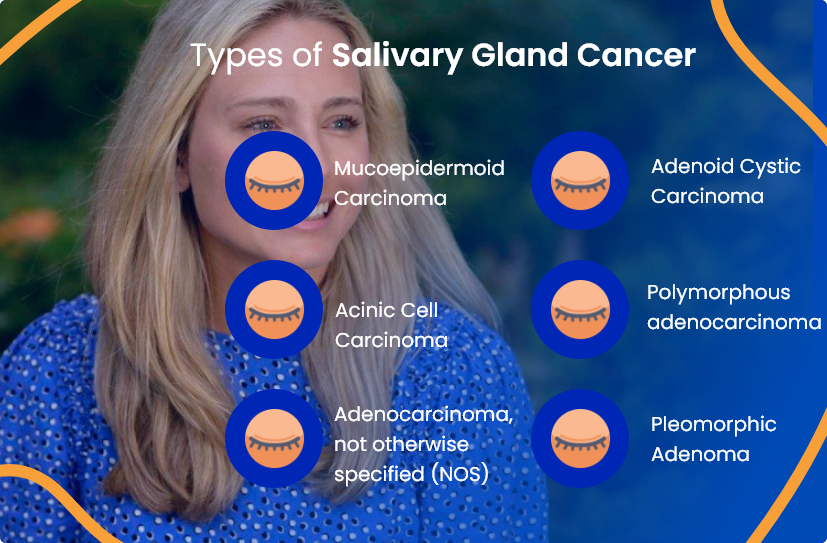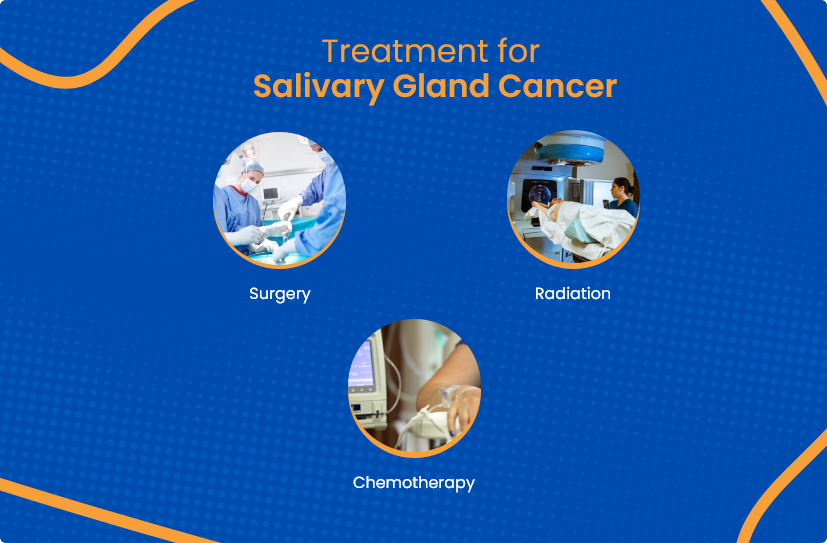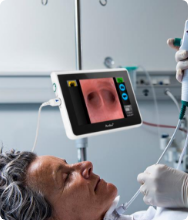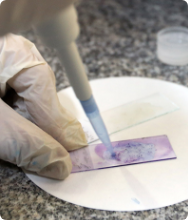
Book a Consultation
Thank you!
Your form has been sent successfully.

Salivary gland cancers are rare cancers that account for less than 5% of all head and neck cancers. They are cancerous tumors that affect the salivary glands. Salivary gland tumors can be benign (non-cancerous) or malignant (cancerous). The presence of tumors in the salivary glands is rare. When they do form, they are more likely to be malignant.
There are several types of salivary gland malignancies. Different types of cells make up the salivary glands, and cancer can develop in any of them. Salivary gland malignancies are usually categorized (from 1 to 3, or low to high) by the appearance of the cells.

The lining cells of the salivary glands are known as mucoepidermoid cells. This type of cancer produces small, mucous-filled cysts. In addition to the parotid gland, these tumors are also found in the submandibular gland.
This malignancy grows slowly but aggressively. It is also more likely than other salivary gland cancers to return after initial therapy. These tend to develop along the nerves, causing discomfort and facial paralysis.
Acinic Cell Carcinoma is a cancer that affects the salivary glands. The growth of acinic cell carcinomas is slow and the majority of them start in the parotid gland.
The most common area for these tumors to begin is in the minor salivary glands. They tend to grow slowly (although not always) and are generally treatable.
It is possible to classify these tumors as adenocarcinomas, but they do not meet the criteria for further classification. They are present in the parotid glands or the small salivary glands.
Pleomorphic adenoma is a benign tumor responsible for (45–75% of all salivary gland tumors). Parotid gland tumors are non-cancerous (benign) benign tumors that gradually lead to the gland getting enlarged.
Some of the salivary gland tumor symptoms are:
 A lump or swelling in the mouth, face, jaw, or neck
A lump or swelling in the mouth, face, jaw, or neck
 Persistent pain in the mouth, cheek, jaw, ear, or neck
Persistent pain in the mouth, cheek, jaw, ear, or neck
 A recent change in the size or form of the face or neck
A recent change in the size or form of the face or neck
 Numbness in a section of the face
Numbness in a section of the face
 Muscle weakness in one side of the face
Muscle weakness in one side of the face
 Trouble opening the mouth wide
Trouble opening the mouth wide
 Difficulty swallowing
Difficulty swallowing
Treatment for salivary gland cancer depends on the type of cancer. It also depends on whether it has grown beyond the salivary glands (metastasized).

Surgery is the first step when it comes to salivary cancer. A surgeon can operate on cancer and remove any surrounding lymph nodes, glands, or tissues.
Radiation therapy is a type of treatment that involves the use of high-energy x-rays or particles to target and eliminate cancer cells. The treatment can be used alone or in combination with other treatments.
The majority of salivary gland malignancies are treated with surgery and radiation therapy rather than anti-cancer drugs.
A medical history review and physical examination is the first step to begin the diagnostic process. A doctor will perform a thorough physical examination. They will examine the mouth, face, jaw, and ears, and check for any signs or symptoms.

Ultrasounds and x-rays of the mouth and jaw can help a doctor identify abnormalities and detect cancer. CT (Computed tomography) or CAT scans, PET (positron emission tomography) or PET scans, as well as magnetic resonance imaging (MRI), can provide a more detailed look at tissue and bones.

It is a non-invasive procedure that allows your doctor to inspect your throat, larynx, and mouth. During this procedure, a thin, illuminated tube with a lens or a small camera will be inserted into the mouth and throat. This will enable them to search for tumors or other abnormalities.

A biopsy allows the doctor to examine the cells of a growth or tumor under a microscope for symptoms of cancer. A healthcare practitioner will extract fluid or tissue from the location to finish the biopsy. Afterwards, the sample will be sent to a laboratory for testing and analysis.
Our patients have access to a multispecialty team of professionals at ACTC, who work together in a highly collaborative and coordinated manner to provide all elements of cancer care in one convenient location. Our doctors are supported by a clinical team with over two decades of experience and a reputation for providing tailored and supportive cancer care.
The following are our providers who you can consult at ACTC:

MD, Hematology & Oncology

MD, Ph.D., Hematology/ Medical Oncology

MD, Radiation Oncologist

Once diagnosed with cancer, you face a series of hard choices. Our experts at ACTC will guide you and your family through every step of cancer treatment. With state-of-the-art technology and experienced cancer specialists, ACTC promises its patients world class healthcare.
Schedule a consultation by calling
 352-345-4565
352-345-4565
Cancers that are grade 1 (low-grade) have the best chance of being successfully treated. They grow slowly and have a similar appearance to regular cells. Cancers that are grade 2 grow at a moderate rate, and cancers that are grade 3 spread rapidly.
Salivary gland tumors are usually treated with surgery to remove the tumor. Salivary gland malignancies may require additional treatment, such as radiation therapy and chemotherapy.
It is possible to treat many types of salivary gland tumors if caught early. Although the major goal of treatment is to cure the disease, it is equally critical to preserve the function of adjacent nerves, organs, and tissues.
Schedule a consultation by calling
 352-345-4565
352-345-4565